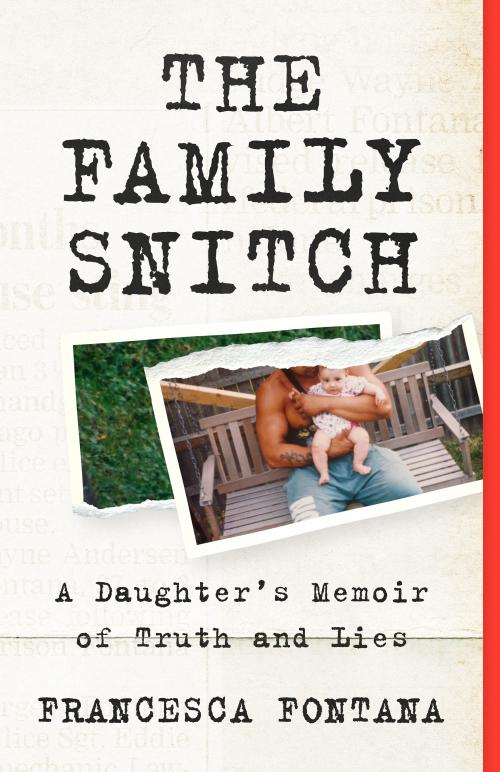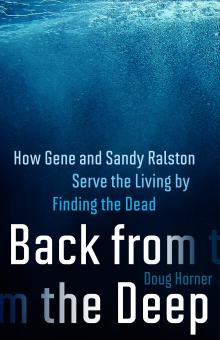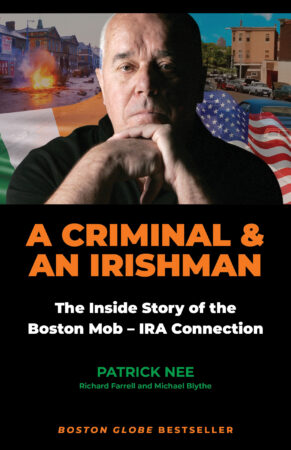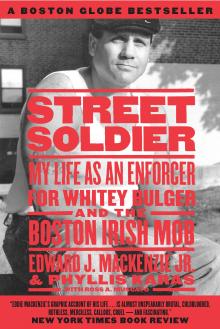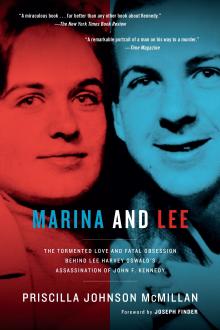Excerpt
Autumn in Oregon was hopeless. The gray skies were one thing, the rain was another—a few Midwestern thunderstorms, doled out instead over months of torturous drizzle. There wasn’t a more lush time for all the Doug firs, I’d give you that. But I don’t remember all that beauty. I remember the chill that set in and stayed, the interminable dampness, the stench of a wet dog.
I don’t know if that is how it would feel to me now, if I were to go back. But that’s how it felt to me then, so that’s how it was. Hopeless.
I haven’t gone back to Eugene since the day I graduated. My beat-up Honda was packed by the time crowds of green robes and tassels lined the streets outside the campus bars. I took my diploma and ran.
My years in Eugene were defined by a fixation upon fact. I was there to study journalism, to earn the degree that cost me thousands of dollars a term, to become the first in my family to go to college. I didn’t grow up with some great passion for the Fourth Estate—I wanted a job with health insurance.
But journalism grew on me, quickly and naturally. What appealed to me was the clear-cut nature of journalistic truth: You only wrote what you knew beyond a shadow of a doubt to be true. This truth was an assembly of fact that, while not absolute, was verifiable, objective, and unimpeachable. All I had to be was a fly on the wall of the world.
Even matters of gray area had black-and-white solutions. Say that, in your reporting, you discovered discrepancies between the accounts of two reliable parties, two versions of some detail of some event. If it was an important detail, you presented the reader with both versions, side by side. If it was not, you threw it out.
My mind thrived in dealing solely with concrete facts and tossing any bias, opinion, or unsubstantiated claim. If ever too many questions floated up—Can a story be factual and not true? Or true and not factual, like a memory? What if your honest-to-God memory deviates from someone else’s, or from any verifiable facts, and the meaning of the rest of your life is piled up on top of it? Does that just mean you’re wrong?—I shoved them down.
Only now, removed by time and distance, can I see my own blind spots—the facts I chose to ignore.
Let’s take one autumn in particular, the fall of my junior year. Here’s a fact: Every day of those months was not dismal and rainy. There were days when the clouds parted and the sun lit up the fallen leaves. But those days never stuck in my memory; I don’t recall them, so they never happened. All I have of those months is the cold, the wet, and the fear.
I had no name for the fear. I knocked on wood each time I thought of my mother dying, or my brother dying, or me dying. At first the knocks came in sets of three. Then it was six, then twelve. Then three sets of twelve, then six sets, then twelve sets. In class, I tried to avoid attracting attention as I drummed my fingers on the table. I learned to improvise. I kept a few pencils for exams in the front pouch of my backpack; they were always within reach and would work in a pinch. They were wood, weren’t they? Otherwise, if I had to, I’d find a reason to wander over near a tree or wooden sign pole and get close enough to brush my knuckles against it, casually, as if it were natural.
When I wasn’t knocking, I picked at calluses real and imagined. I peeled back hangnails. I dug into the skin under my sleeves or at the nape of my neck. Sometimes, when I snuck my hand back to my lecture notes, I saw blood pooled under my fingernails. I wiped them on my jeans. No one ever seemed to notice.
There were other rituals. Each night I spent an hour at my desk, using scratch paper to draw out the same calculations over and over. I added up how many scholarship dollars I received for the term, how many of those dollars were left in my bank account after class registration, and how many more months of rent and textbooks and the occasional meal those dollars would cover. Then I flipped the page over and recorded up-to-the-minute balances of my bank accounts, which I checked a minimum of five times between morning and night. The numbers didn’t so much comfort me as did the act of checking again and again, conjuring up the sums that told me I was safe.
I had no practical excuse for all the bookkeeping, or the picking, or the knocking. The fear had no basis in fact. But tension like static filled my bones until I gave it a release.
***
One night during that miserable autumn, I was blindsided. My boyfriend had come home to our shared apartment, washed the dishes, and left for the final time. I was blindsided—that’s what I told myself and the few friends I had to confide in. That’s what I chose to believe. But now, I check the facts.
Justin asked me out when we were in high school, back home in Portland. We met in choir class. Everyone said we made an attractive couple. We contrasted each other in a way that many find visually compelling: his blue eyes and light hair, mine all dark. I liked that he had all the traits I lacked. I told him I loved him far too soon, but he was the one who said it first.
We followed each other to the University of Oregon. During our sophomore year, we decided to ditch the campus dorms and leased a small apartment in an old complex. Eugene Manor. It was not majestic. The building boasted threadbare carpet and an antique gated elevator that lurched and squealed at every stop. I chose to romanticize its quaintness and its age. Really, its sole selling point was its distance from noisy Greek row, and from all of the newly-constructed apartments that my classmates’ parents shelled out for. I hated all of it; I hated any reminder of where I was and how I fit into my surroundings; I hated everything I didn’t have.
The summer before our junior year, everyone was talking about the Big One: the super-earthquake scientists expected to ravage the Northwest at any moment. I’d read about it, like everyone else, in The New Yorker. Our postwar was built to stand a fighting chance against atomic bombs, not earthquakes. The dread consumed me. I cried in quick gasps at least once a week at the thought of debris burying me alive in a 500-square-foot tomb.
Justin knew our relationship was over by the end of that summer. I made us move into a wooden townhouse on the outskirts of Eugene, the kind of structure that would be less likely to kill us when—not if—the Big One hit. He’d tried to break up with me as we packed up the bedroom at Eugene Manor. I didn’t let him. I told him the feeling would pass. I told him I would get better.
To make good on my promise, I went to a therapist at the university’s health center, where each student was entitled to ten free sessions. She thought I sounded depressed. She thought I was showing some obsessive-compulsive tendencies. She emailed me a couple of MP3 files: guided meditations.
Then I got a physical. The doctor put me on 50 mg of Zoloft. My panic attacks eased in physical severity—my hands stopped going numb every time—but they never went away.
Then I took a hard look at myself and at the relationship I was so desperate to save. What was I bringing to the table here? And, for that matter, what was he? During that summer, I had started to resent our contrasts, the differences between us. Justin was naive, privileged, unfocused, at risk of becoming stunted. I was self-righteous in my poverty and my suffering, and I wasn’t shy anymore in telling him exactly what I thought of his defects. I was encouraging him to grow, I told myself, but I knew deep down I was just being mean. His immaturity embarrassed me in public; My anger scared him in private.
That October, after we’d unpacked the last of our moving boxes, just as the rain began and never let up, Justin handed me a key. It was a copy, for a studio apartment next to campus. His new apartment. We weren’t breaking up, he insisted; he was just moving out for a while. I’d have the spare key, and we’d each get some much-needed distance. I took the key, put it on my lanyard, and believed him. He dumped me, days later, sometime between my 21st birthday and Halloween. The night he came home and did the dishes and left, I was stupid enough to be surprised. Blindsided. Now, I see it differently. I shake my head. Where, then, was my reporter’s eye?
It’s a fact that I lost weight rapidly in the days that followed. I stopped trusting fresh produce not to make me sick with some food-borne illness. I ate what I could of cheap canned food. I struggled to clean the plates Justin and I had bought together, just like I struggled to do anything that required standing up. They piled up in the sink, and the ants came in swarms until I threw the whole set away. I explained away my absent appetite and loosening jeans before anyone had a chance to ask questions I didn’t want to answer. When I went home to Portland for a visit, I noticed the crease in my mother’s brow. I ignored its meaning. While she was busy in another room, I dug her scale out of its old hiding place and stepped on.
I still remember the number I saw that day, even as the years accumulate between that cold, wet autumn and the one I find myself in now. I saw that number not too long ago, on my own scale, in my own home. I wasn’t surprised to see it again. I knew I’d been losing weight rapidly. My husband watched me cry over a plate of pasta I didn’t prepare myself and its uncertain contents. For weeks at a time, I ate only protein bars, string cheese and bananas; each protected from the world’s contaminants by its wrapper. When he approached me with concern, I didn’t know what to say. I had no words for the fear, no more than I’d had back in Eugene, all those years ago.
But back in Eugene, I lived alone. I answered to no one, and the fear flourished.

